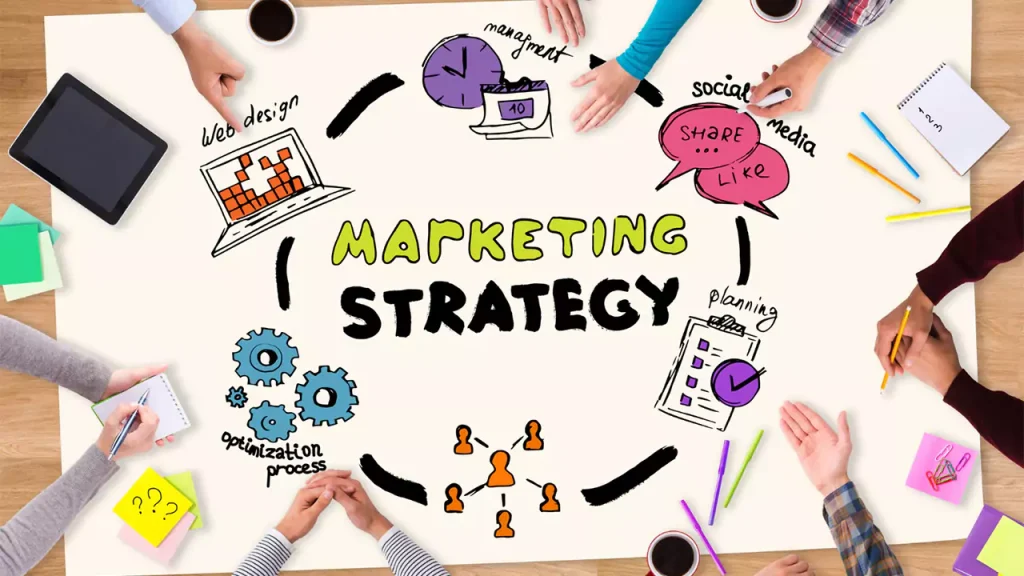What’s in Your Company’s Sales Toolbox?
Table of Contents
Salespeople play a crucial role in helping companies increase sales and make a profit through the sales toolbox. Salespeople are an important part of the company as they not only help to increase sales but also portray the image to outsiders.
The customers make an image of the company based on their interaction and experience with the salespeople. Having essential tools and marketing skills can make salespeople more enthusiastic about becoming successful. Some critical tools for your business sales toolbox are listed below.
- CRM Software: CRM systems help salespeople manage customer data, track leads, and monitor their sales pipelines.
- Email Tracking Software: The use of email tracking software can help salespeople understand the engagement levels of prospects and customers, such as the number of emails opened and clicked, and tailor their email communication accordingly.
- Sales Acceleration Software: This software automates and streamlines repetitive sales tasks, such as lead generation, email outreach, and follow-ups, so that salespeople can spend more time engaging with prospects.
- Sales Intelligence Software: Sales intelligence software provides salespeople with real-time data and insights into their prospects and customers, including firmographics, technographic, and intent information.
- Sales Enablement Tools: Sales enablement tools provide salespeople with the resources they need to effectively engage with prospects and customers, including content management systems, playbooks, and training materials.
- Video Conferencing Software: This software allows salespeople to conduct virtual meetings and demos with prospects and customers from anywhere.
- Mobile Sales Apps: Mobile sales apps let salespeople stay connected and productive while on the move, providing them with critical sales information and tools.
Remember, the specific tools and software that salespeople need may vary depending on their role, industry, and target market.

The Importance of Effective Business Cards
Getting a business name in the marketplace is the biggest challenge faced by entrepreneurs. Effective business cards help to overcome this challenge. Salespeople should always carry a business card and sales toolbox as it is the takeaway that people will have even after they have ended the conversation. A well-designed and well-printed business card help in creating a lasting impression in the mind of customers.
Salespeople can encounter potential customers at any point in time, and they must be well prepared to tackle such situations.
The Power of Presentations for Sales Success
They should be well educated on the company and its products and ideally should always have access to the presentation or preferably a video presentation about the company and its products. Having the presentation can be helpful to pitch more sales and gain the trust of the customers.
Setting Specific and Measurable Sales Goals
Successful salespeople should be ambitious, and they should have a specific target in their minds. They should set goals that are not vague; instead, they should be specific and measurable. For example, the goal should not be defined as ‘to be a good salesperson.’ Instead, they should make a specific target, ‘to be among the top 10 salespeople of the company in a stipulated time. If the goals are defined it becomes easier to define the path in the sales toolbox business.
Highlighting Customer Benefits to Close Sales
A good sales staff should be able to convince customers that by using your product they will get the desired results. Customers are less interested in knowing the features of the products and more interested in knowing their benefits for them. A successful salesperson understands this and will share the experiences or testimonials of the previous satisfied customers rather than describing the details of the product.
Customer Service: The Key to Sales Success
The main focus of a salesperson should be the customer and not the sales. Salespeople should understand the needs of the customers and deliver in a way that exceeds their expectations of the customer. Providing good customer service is the key because 80% of business comes from 20% of the customers. Hence, a salesperson needs to be an expert in the handling of customers.
Salespeople play a very crucial role for companies and hence are loaded with a lot of tasks. They need to be efficient and proficient in the activities they perform. Multi-tasking and making optimum use of skills and tools can help them thrive in the competitive market.
Does Your LLC Need a Salesperson?
A solopreneur who manages their own LLC might feel overwhelmed by how much responsibility they are now in charge of.
By hiring a Salesperson, you could simply delegate some work, which might help your company grow. If you take the sales responsibilities off your plate, you can focus on things that are more appropriate to your skills and help grow your business.
Recommended: Read our free guide on how to form an LLC in your state
FAQs:
A sales toolbox refers to a collection of resources, tools, and strategies that a company utilizes to support its sales efforts. It includes various sales materials, software, training resources, customer relationship management (CRM) systems, and sales methodologies to help sales teams effectively engage with prospects and close deals.
Common tools found in a company’s sales toolbox include sales presentations, product brochures, case studies, customer testimonials, competitive analysis materials, pricing guides, proposal templates, CRM software, lead generation tools, sales training materials, and communication tools such as email and video conferencing platforms.
A CRM system is a valuable component of a company’s sales toolbox as it helps manage customer data, track sales activities, and improve customer relationship management. It enables sales teams to organize and prioritize leads, monitor sales pipelines, generate reports and analytics, and streamline communication and collaboration across the sales organization.
Sales training resources play a crucial role in a company’s sales toolbox by providing sales teams with the knowledge, skills, and techniques needed to effectively engage with customers and close deals. Training resources may include product knowledge materials, sales methodologies, objection handling techniques, negotiation strategies, and continuous professional development programs.
Regularly updating and enhancing a company’s sales toolbox is important to stay competitive and adapt to changing market dynamics. It allows businesses to incorporate new technologies, industry best practices, and sales strategies to improve efficiency, effectiveness, and overall sales performance. Continuously evaluating and refining the sales toolbox ensures that sales teams have the necessary resources to meet customer needs and drive business growth.













